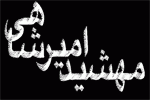Three years ago, Ayatollah Ruhollah Khomeini’s death sentence against the writer Salman Rushdie shocked the whole world. Yet no effective action was undertaken by anyone, anywhere, to counter this most unprecedented and inhuman “manhunt” of our time. Individuals, of course, demonstrated their indignation as well as their frustration, hoping against all odds that their respective governments would take the appropriate steps to put an immediate stop to this notorious official act of terrorism.
Governments, however, did virtually nothing. They either kept silent or came out with some half-hearted, timid, even embarrassed statements, mildly reproachful toward the Islamic republic of Iran, followed by much more strongly worded warnings aimed at the very victim of that regime, Salman Rushdie, for being disrespectful toward “the Muslim world.”
Of which Muslim world were they thinking, and of which Iran? Do they really think that Iran’s clerics represent “Islam” or speak for the Iranian people? The history of Islam is replete with accusations of heresy and blasphemy against those courageous enough to challenge the prevailing orthodoxy.
Indeed, among the three monotheistic religions, Islam has been at the forefront as far as “heresy” is concerned; among the Muslim countries, Iran can be considered the cradle of “blasphemy” ever since Islam was implanted there 14 centuries ago.
Thinkers, writers and poets, from Zakaria Razi (Iranian philosopher 865-935) and Omar Khayyam in the 12th Century to Sadegh Hedayat (1903-1951) and Zabih Behrouz (1910-1972) in the 20th, have been tarred with the brush of “blasphemy.” Yet the names of the excommunicators (and there have always been a few) have long been forgotten, while the works of Razi, Khayyam, Behrouz, Hedayat and many others are part and parcel of Persian culture.
What also seems to be totally and universally ignored in the whole affair is the paradox of the ascension of the mullahs to power in Iran in the name of Allah. The “success” and the recent chaotic failure of another revolution – the Russian one, made in the name of a non-existent proletariat — provide an excellent parallel. The Iranians, needless to say, are just as ardent Muslims as Russians were fervent communists, and the mullahs’ fatwas (decrees) are as representative of Persian culture as the edicts of the Soviet leaders were of Russian.
In spite of all the modern technology and petrodollars at their disposal, and their insistence on Islamic authenticity, the mullahs in Iran have pathetically failed (and will continue to fail) in concocting “Islamic novels”, “Islamic films”, “Islamic canvases” and “Islamic rhythms.” All they are capable of doing with these vast means is to suppress all expression of creative arts.
Each Iranian writer, artist, journalist or thinker in Iran is a potential Rushdie. They all continuously live under that merciless religious censorship and often have to face its barbaric punishments, which range from being publicly whipped to being jailed in isolation or even killed.
Under these terrifying threats, obviously no one inside Iran is in a position to express his or her ideas openly. Fifty exiled Iranian intellectuals, signatories of a recent declaration, have taken it upon themselves to represent all the silenced voices of their compatriots by showing their solidarity with Rushdie and their abhorrence of the fatwa issued by Khomeini.
It is high time someone outside Iran did something – first and foremost the Muslim intelligentsia, who should view the Rushdie case as the Dreyfus affair of the Islamic world.
This intolerable death sentence is not only upheld by Khomeini’s successors, it is even reinforced; they actually keep raising the price put on Rushdie’s head.
Yet all the world’s governments, without exception, turn a blind eye to this fact and repeat parrot-like the wishful and ridiculous scenario of “moderate mullahs” calling the shots in Iran.
The sooner they realise that the ecclesiastics already in power or coming to it despise the profane virtues of moderation and sincerity, the better. If ever governments understood this, one could hope that they would think twice before giving that regime any concessions.
1Newsday, New York, U.S.A., 29th. April 1992.
